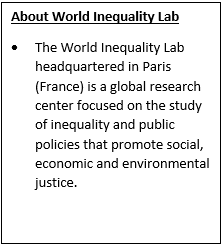You're all caught up—no notifications available.
Explore All Exams at KGS

All Exams
Explore All Exams at KGS
Khan Sir Courses
Geography I Polity I History | World Map I Indian Map I Economics I Biology
UPSC & State PSC
UPSC I BPSC I UP-PSC I MP-PSC
State Exams
UP I Bihar I MP | Rajasthan
NEET | JEE | CUET | Boards
NEET | JEE | CUET | Boards
Defence Exams
NDA I CDS I CAPF I AFCAT I SSB I Agniveer
Police Exams
UP SI | Bihar SI | Delhi Police | UP Constable
SSC Exams
CGL I CPO I CHSL I MTS I SSC GD I Delhi Police
Foundation Courses
Physics I Chemistry I Biology I History I Geography I Polity I NCERT I Math I English | Map I Reasoning
Railway Exams
RRB | RPF
Teaching Exams
TET | Teaching | UGC
Banking Exams
SBI | RBI | IBPS
Engineering Exams
Civil | Electrical | Mechanical
UGC NET
UGC NET/JRF
Current Affairs provides you with the best compilation of the Daily Current Affairs taking place across the globe: National, International, Sports, Science and Technology, Banking, Economy, Agreement, Appointments, Ranks, and Report and General Studies

SYLLABUS
GS-3: Conservation, environmental pollution and degradation, environmental impact assessment.
Context: Recently, the World Inequality Lab published the Climate Inequality Report 2025 highlighting how extreme wealth concentration is directly accelerating the climate crisis through capital ownership and unequal emissions.
More on the News
• It warns that climate change may further widen the global wealth gap if ownership of low-carbon assets remains concentrated among the rich.
• It states that the carbon budget for limiting warming to 1.5°C may be exhausted within the next three years.

Key Highlights of the Report
• Climate crisis fueled by Wealthy Individuals: The top 1 percent cause 15 percent of global emissions based on consumption and 41 percent of emissions based on private capital ownership.
Emission Inequality: The per capita emissions of an individual in the global top 1 percent are around 75 times higher than someone in the bottom 50 percent under a consumption-based approach.
• Wealth Inequality: Climate change can deepen wealth inequality as the share of wealth held by the global top 1 per cent could increase to 46 per cent in 2050 from 38.5 per cent at present if those individuals were to make and own all necessary climate investments in the next decades.
• Vulnerability Inequality: It cautions that climate change can deepen inequality as the poorest remain most exposed to climate damage and have the least capacity to adapt.
• Key recommendations:
Proposed a carbon-adjusted tax on wealth and investments, with the double goal of discouraging high-carbon investments and financing the green transition in a progressive manner.
UPSC Mains Practice Question
The Climate Inequality Report 2025 argues that the climate crisis is not only an environmental issue but also a structural outcome of global wealth concentration. Discuss how wealth ownership patterns influence emissions and assess the policy recommendations made in the report to address this inequality.

NCERT Books
Resources
We love learning. Through our innovative solutions, we encourage ourselves, our teams, and our Students to grow. We welcome and look for diverse perspectives and opinions because they enhance our decisions. We strive to understand the big picture and how we contribute to the company’s objectives. We approach challenges with optimism and harness the power of teamwork to accomplish our goals. These aren’t just pretty words to post on the office wall. This is who we are. It’s how we work. And it’s how we approach every interaction with each other and our Students.
Come with an open mind, hungry to learn, and you’ll experience unmatched personal and professional growth, a world of different backgrounds and perspectives, and the freedom to be you—every day. We strive to build and sustain diverse teams and foster a culture of belonging. Creating an inclusive environment where every students feels welcome, appreciated, and heard gives us something to feel (really) good about.
Get Free academic Counseling & Course Details
